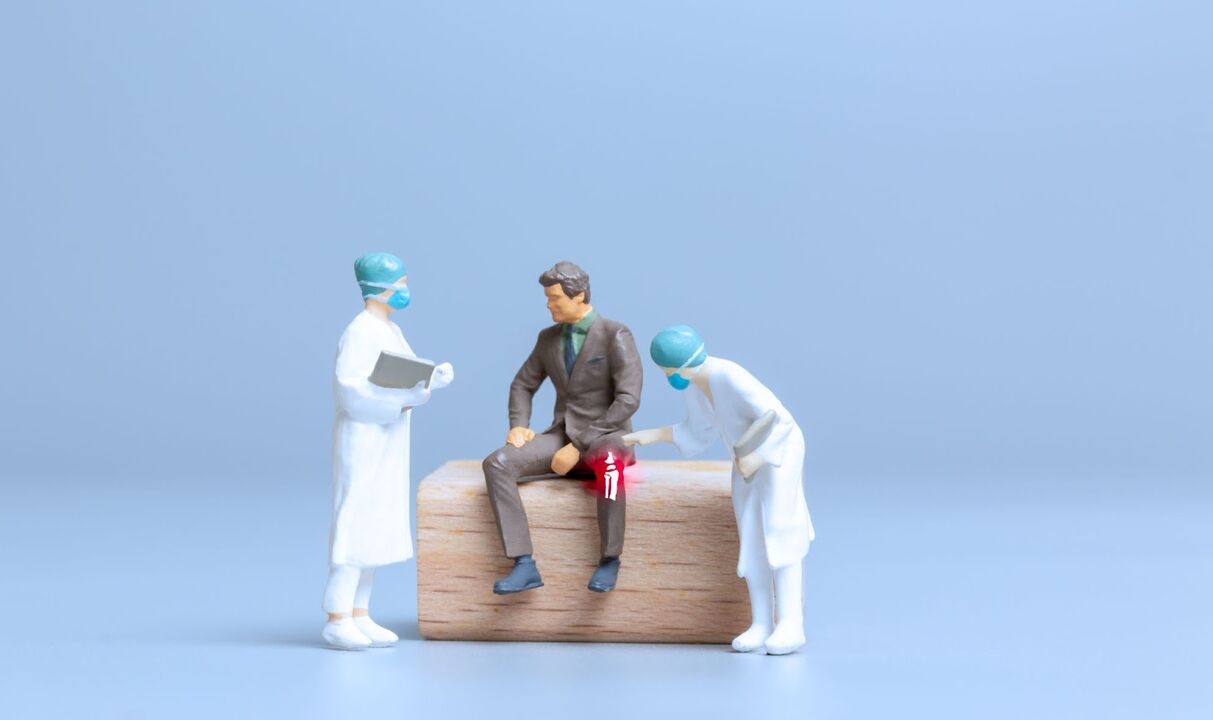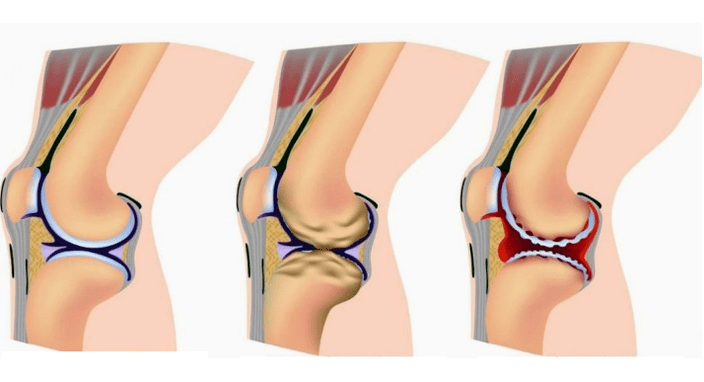Both osteoarthritis and arthritis affect the joints and have similar symptoms. Therefore, they are often confused. Even their names are consonants, however, they are completely different diseases. If osteoarthritis destroys the joints, arthritis causes an inflammatory process throughout the body. This is the fundamental difference between osteoarthritis and arthritis. Now in more detail.
The most important thing about arthritis
Arthritis is a progressive disease caused by infection, immune or metabolic system disorders, hormonal disorders. There are more than 200 varieties. The main symptom of arthritis is inflammation in the joint area, swelling, redness of the skin. In advanced form, the disease gives complications to the heart, kidneys and liver. At risk are people between the ages of 25 and 40.

arthritis symptoms
The disease may be hidden. The first signs of arthritis are usually:
- Pain. It comes on suddenly and gets worse with movement. It is felt more intensely at night, after sleeping stiffness is felt;
- Tissue changes. Arthritis is characterized by swelling and redness of the skin, synovitis and bursitis are possible (in the first case, it is an inflammation of the synovial membrane, in the second - the articular bag);
- Temperature increase. As a rule, the temperature rises in the affected joints. A high body temperature (38-39 degrees) can also be observed.
Symptoms exacerbate the manifestations of the inflammatory process:
- prostration;
- pain when urinating;
- shaking chills;
- conjunctivitis.
If the symptoms are ignored, the disease will become chronic. As a result, the work of the internal organs will be disrupted, and the modification of the joints can lead to disability.
The most important thing about arthritis
Osteoarthritis is a non-inflammatory disease that leads to deformation and destruction of cartilage tissues. Cartilage covers the joint surface and prevents the bones from touching each other. When it is in order, the person moves freely and without pain. The causes of the pathology may be different: heredity, deviations in the structure of the joints, injuries, excessive loads. Unlike arthritis, the disease only affects the joints.
Osteoarthritis usually develops in older people, as the joint surfaces wear down with age. The disease is also found in people who, due to their occupation, greatly overload the joints of the hands, wrists and legs. Therefore, osteoarthritis is also called "athlete's disease" or "pianist's disease".
arthritis symptoms
The disease is indolent. In the initial stage, symptoms may not appear. The first symptoms of osteoarthritis are usually the following:
- The joint is immobile after prolonged sleep or rest, but this quickly disappears with movement;
- Crunch, rattle, clicks - all this is accompanied by a dull sound;
- Pain on movement and effort.
In the later stages of arthrosis, the symptoms are already noticeable: the joint becomes more immobile, pain appears, and the "hard joint" syndrome also develops - soft cartilage tissue is replaced by bone growths. The development of the disease leads to the immobilization of one or more joints.
Distinctive signs of arthritis and osteoarthritis.

By carefully studying the symptoms and causes of osteoarthritis and arthritis, you can easily see the difference. We have combined the differences of the diseases to make this difference even more obvious.
contrast |
osteoarthritis |
Arthritis |
affected area |
Joints, cartilage, spaces between bones |
Joints, bones, internal organs: heart, liver, kidneys |
The nature of the disease |
Degenerate, destructive. Only the joints are affected. |
Inflammatory. The disease affects the internal organs. |
common causes |
Increased stress on the joints, heredity. |
Severe infection, metabolic disorder |
Years |
It develops in people of mature or advanced age. Risk factor: activities associated with excessive stress on the joints. |
It develops in people between the ages of 25 and 40, but it also occurs in adolescents and children. |
Pain |
Often this is a mild pain that appears during movement and energy charges. In later stages, the pain becomes more intense. |
The pain is aggravated by movement, and is most acutely felt in the early morning. |
creak and squeak |
Dull clicking, snapping, or grinding noises are characteristic |
Does not belong to the characteristics |
Deformation |
The joint is deformed, an inflammatory process is manifested. |
There are seals, swelling, redness and fever in the joint area. The deformation occurs if one disease has turned into another. |
decreased mobility |
Arthrosis is attached only to the affected joint. |
Stiffness throughout the body or in a joint |
acute symptoms |
The joint "hardens" due to the formation of bone growths. In this case, the person can no longer move the leg or fingers. |
High temperature - 38-39 degrees, conjunctivitis develops, there is a collapse and fever. |
Symptom Development |
It develops slowly, at the initial stage it is asymptomatic. |
At the initial stage, there are symptoms of inflammation in the affected joint area. |
Prevention of arthritis and osteoarthritis
The disease is easier to prevent than to treat. Disease prevention includes:
- Moderate physical activity: fitness, swimming pool, skiing, cycling are suitable;
- Joint gymnastics - you can do this with a trainer in exercise therapy or stretch your joints at home;
- Proper nutrition - if there is a tendency to bone disease, it is worth giving up red meat and fatty foods. It is better to add more fruits and vegetables, fish and shellfish to the diet. If you are overweight, you must follow a diet;
- Drink enough water - 2 liters per day. It is advisable to give up alcohol.
To reduce the risk of diseases, doctors recommend wearing comfortable shoes, not sitting cross-legged, not getting cold and not succumbing to stress.
If you have symptoms that resemble arthritis or osteoarthritis, make an appointment at our Orthopedic Center. These diseases significantly reduce the quality of life, so it is important to diagnose them early and start treatment.















































